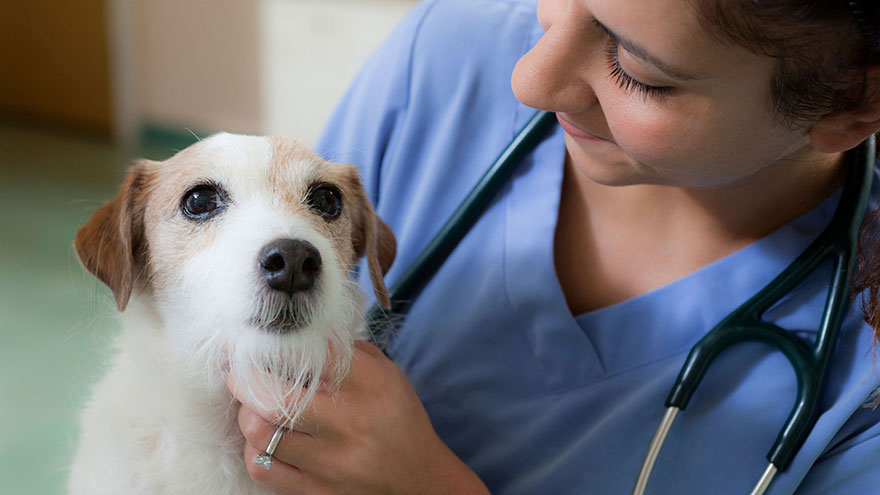Why Does a Puppy’s Breath Smell So Bad?
There’s nothing like sweet-smelling puppy kisses to start the day, but if Fido’s breath smells foul, something could be amiss. A healthy puppy’s breath should smell pleasant, not stinky. Bring your little one to the vet to rule out a health condition as the cause of his smelly breath. Keep his breath smelling fresh with regular toothbrushing and dental treats.
Dental Issues
Puppies begin to cut their baby teeth, also known as deciduous teeth, around 3 weeks of age. When this happens, their breath might become unpleasantly fishy or otherwise unpleasant smelling. Teething can lead to inflammation of the gums and sometimes a bacterial infection or abscess. It’s the bacteria that cause the unpleasant odor.
Between 3 and 6 months of age, the permanent teeth come in to replace the baby teeth, which may again cause stinky breath. Sometimes the baby teeth prevent the permanent teeth from cutting through and lead to periodontal infections. A visit to the vet can rule out any serious infections or dental problems in the mouth, especially when the permanent teeth are coming in.

Eating Feces
Little pups tend to explore their environment with their mouths. Unfortunately, this could lead them to eat their own feces, a condition called coprophagy. If your pup has been snacking on his stool, he could develop very bad breath. Stop this behavior by cleaning up any accidents in the home quickly so he doesn’t have the chance to ingest his feces.
Leash your pooch when training him to eliminate outdoors to keep him away from his feces or the feces of other dogs. Sometimes puppies eat feces because they’re not being fed a high-quality puppy food or need to be fed more often, according to petMD. Consult with your vet about your pup’s behavior and his diet to ensure he’s getting enough of the proper nutrients.
Health Problems
Liver and kidney problems can lead to bad breath, as can gastrointestinal issues and metabolic diseases. Intestinal parasites can be passed from a nursing mother dog to her pups, which can lead to gastrointestinal problems and bad breath. Your pup also may pick up these parasites more easily than an adult dog because his immune system is still developing.
Respiratory problems and even issues such as tonsillitis can cause bad breath in pups. Because there are so many different types of health issues that can cause halitosis in your pup, it’s best to see the vet. She can determine what is causing the unpleasant odors emanating from your pup’s mouth and treat them to keep your pup’s breath fresh.
Regular Dental Care
Once your vet rules out a medical issue as the cause of your pup’s smelly breath, you’ll need to keep Fido’s breath fresh by brushing his teeth daily. Do this with canine-specific toothpaste, not human toothpaste, which can upset his tummy. You can find pet toothbrushes and toothpaste in pet supply stores. Starting a good dental hygiene routine with your pup at a young age will prevent issues later in life with periodontal disease.
You also can give your pooch some dental treats, which are crunchy and help to remove plaque from his teeth when he chews on them. Another option is to give your puppy some chew toys to use. Not only will these help with teething, but they’ll also assist in removing smelly plaque from his teeth.
You Might Also Like :: Intermittent Diarrhea in Dogs

